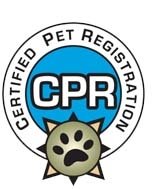NOVA SCOTIA DUCK TOLLING RETRI Breed Standards
The Nova Scotia Duck Tolling Retriever has perhaps the most difficult job in the canine world. The word toll is of Middle English origin, meaning to decoy or lure, and tolling dogs have been used by hunters in Europe and North America since the 17th century. A tolling dog’s job is twofold: first it must play and frolic along the shoreline, sometimes for hours at a time, all the while completely ignoring nearby waterfowl. Eventually, the birds’ attention is piqued by the playing dogs and they come toward the shore to get a closer look. At that point the dogs’ master, who has been hiding nearby the whole time, will take his shot. The tolling dog can now complete the second part of his job by swimming into the water to retrieve the downed fowl.
The Nova Scotia Duck Tolling Retriever was first bred in Yarmouth County, Nova Scotia, during the early 19th century. The dog’s ancestry is uncertain, but it is likely to be the product of crossbreeding between the red European decoy dog and various spaniels, retrievers, setters, and possibly even dogs indigenous to North America. Originally called the Little River Duck Dog, the Nova Scotia Duck Tolling Retriever was recognized by the Canadian Kennel Club in 1945. The breed was introduced to the United States in the 1960s, but was not officially recognized by the American Kennel Club until 2003. While still far from commonplace in the United States, the dog’s quick wit and endless energy have earned it a steadily growing following.



